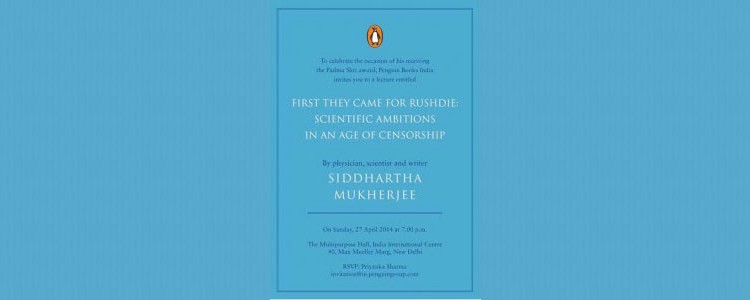Granta 125 and 126
 Granta 125: After the War and Granta 126: Do you Remember are two issues that you read, put away, mull over, revisit, make parts of it your own and then it becomes a part of you. After the War ( http://www.granta.com/Archive/125 ) has contributions by Romesh Gunesekera, Justin Jin, Herta Muller, Aminatta Forna, Hari Kunzru, Paul Auster and Patrick French. Every essay is an account of a conflict area that is familiar to the writer. It could be Sri Lanka for Romesh Gunesekera or being in Iran at the time of the American hostage crisis for Aminatta Forna or being a Jew in America for Paul Auster or as Patrick French does in his part-reportage, part-memoir, grapple with the expectations of and coming to terms with having a war hero for an uncle. Every single essay or short story in the magazine is distinct in its style, in what it documents and what the writer chooses to dwell upon, at times even complimented by the sentence structures. Paul Auster’s essay, “You Remember the Planes”, forces you to read it, grapple with it since the paragraphs are sometimes over a page or two in length. You cannot pause to reflect but have to read on and on.
Granta 125: After the War and Granta 126: Do you Remember are two issues that you read, put away, mull over, revisit, make parts of it your own and then it becomes a part of you. After the War ( http://www.granta.com/Archive/125 ) has contributions by Romesh Gunesekera, Justin Jin, Herta Muller, Aminatta Forna, Hari Kunzru, Paul Auster and Patrick French. Every essay is an account of a conflict area that is familiar to the writer. It could be Sri Lanka for Romesh Gunesekera or being in Iran at the time of the American hostage crisis for Aminatta Forna or being a Jew in America for Paul Auster or as Patrick French does in his part-reportage, part-memoir, grapple with the expectations of and coming to terms with having a war hero for an uncle. Every single essay or short story in the magazine is distinct in its style, in what it documents and what the writer chooses to dwell upon, at times even complimented by the sentence structures. Paul Auster’s essay, “You Remember the Planes”, forces you to read it, grapple with it since the paragraphs are sometimes over a page or two in length. You cannot pause to reflect but have to read on and on.
Earlier this year, I met Romesh Gunesekera at the Jaipur Literature Festival. We were chatting about his new book, Noontide Toll, when the conversation veered towards war and craft of writing. Later in an email he wrote “I would say that one has to attend to the craft. If the sentences don’t work, then whatever is being written will not last long enough to matter.” ( This was in response to an interview I did for the Hindu Literary Supplement. It is as yet to be published.)
Aminatta Forna essay, “1979”, is about the events in Iran, the American diplomats who were taken hostage. Aminatta Forna was fourteen years old and had moved to Teheran with her family, since her stepfather had been posted to the city by the United Nations. She witnesses and recounts her experience of being in Iran in the 1970s. She refers to the “curfew parties”, which under ordinary circumstances would be considered “bizarre”, but when read in context of the events, seem like perfectly natural and ornate spaces created for socialising and sharing of experiences, shutting out the dark reality. In fact, Aminatta Forna offers a course in Witness Literature where fiction is used to express and document events. Here is a short film made by a student of hers discussing it: https://www.youtube.com/watch?v=PELSk5JkaZI These events of 1979 were recently documented in Ben Affleck’s Oscar-winning film Argo. I am unable to locate the link for now, but Aminatta Forna’s mother wrote a very powerful article in a UK-based newspaper presenting her side of the story and how much of Ben Affleck’s film was pure fiction.
Patrick French’s title essay “After the War” is about his great-uncle Maurice Dease who fought in the Battle of Mons and was the first recipient of the Victoria Cross. I suspect an essay like this, expanded into a book form will work brilliantly—part anecdotal, part personal, part historical and with a strong perspective. Narrative non-fiction at its best, connecting to the past, yet firmly fixed in the present.
 Of all the essays in Do you Remember ( http://www.granta.com/Archive/126 ) two have remained with me — David Gates, ” A Hand Reached Down to Guide Me” and Johnny Steinberg’s “The Defeated”. David Gates’s essay is about his friendship with Paul Thompson, a singer, who when he is dying, opts to stay on Gates’s farm. It is a moving account of reading about Gates admiring the Thompson from afar, to becoming a good friend and then a tender caregiver. Johnny Steinberg’s essay is a little more complicated. It may seem like reportage about the events KwaZulu-Natal province of South Africa and the clashes between the farmers and tenants. But there are layers and layers to the stories he recounts — his own experience of collecting the facts, the stories the tenants recount and the farmers. Of many generations before and of the rapid change taking place since Apartheid was abolished in early 1990s. It leaves you wondering about the various ways in which one event can be remembered.
Of all the essays in Do you Remember ( http://www.granta.com/Archive/126 ) two have remained with me — David Gates, ” A Hand Reached Down to Guide Me” and Johnny Steinberg’s “The Defeated”. David Gates’s essay is about his friendship with Paul Thompson, a singer, who when he is dying, opts to stay on Gates’s farm. It is a moving account of reading about Gates admiring the Thompson from afar, to becoming a good friend and then a tender caregiver. Johnny Steinberg’s essay is a little more complicated. It may seem like reportage about the events KwaZulu-Natal province of South Africa and the clashes between the farmers and tenants. But there are layers and layers to the stories he recounts — his own experience of collecting the facts, the stories the tenants recount and the farmers. Of many generations before and of the rapid change taking place since Apartheid was abolished in early 1990s. It leaves you wondering about the various ways in which one event can be remembered.
Both the books are worth reading.
1 May 2014






